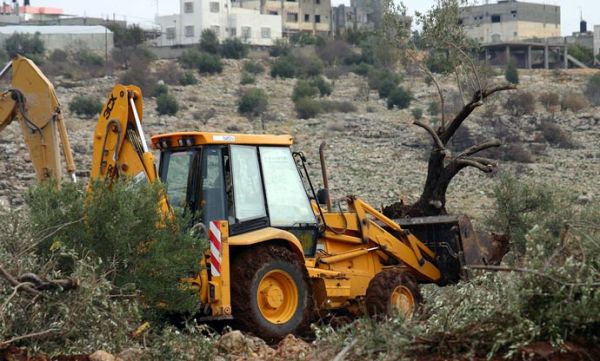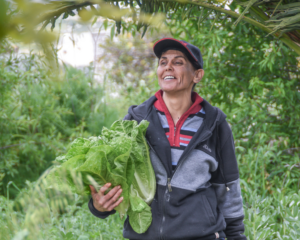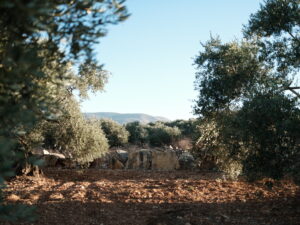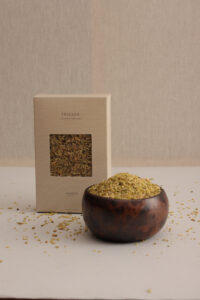November 1, 2009 By Diane Adkin
They are everywhere in the West Bank, dotting the hillsides and terraces around Jenin, the ancient olive trees of Palestine. More than just a symbol of Palestinian rootedness in the land, the olive trees are the roots in the land.
The state-of-the-art olive press is in a beautiful room with Arabic calligraphy tiles, photo by Amanda Nunn.
Canaan has 40 huge stainless steel storage tanks in an underground room for natural cooling، photo by Amanda Nunn.
The annual olive harvest is the centre of Palestinian culture. It is a joyful family affair. Kids get off school to help with the harvest (boys one week, girls the next). Adults take off from their day jobs to go to their family’s village to help with the harvest. The fresh olive oil goes home with them in recycled two-litre pop bottles. All Palestinians are part of an ancient line of farmers. Even if they have professional jobs, their lives in the fall revolve around ripe olives. Out come the tarps and ladders, tractors, donkeys and pickup trucks, and the harvest begins.
Hands or plastic combs are used to make the olives fall from the branches to the tarp in a soft rain, making a gentle pattering sound. As one tree is finished, the family moves on to the next. The tarps are pulled up and the olives funnelled into burlap bags. The bags are piled into wagons pulled by tractors. The tractors drive right into the villages for the night. Extra hands are always welcome for the harvest, and Palestinian society is historically inclusive; internationals could not come to a more welcoming place.
Read More, Follow the link: Fair Olive Harvest in Palestine http://archive.thisweekinpalestine.com/details.php?id=2927&ed=175&edid=175





